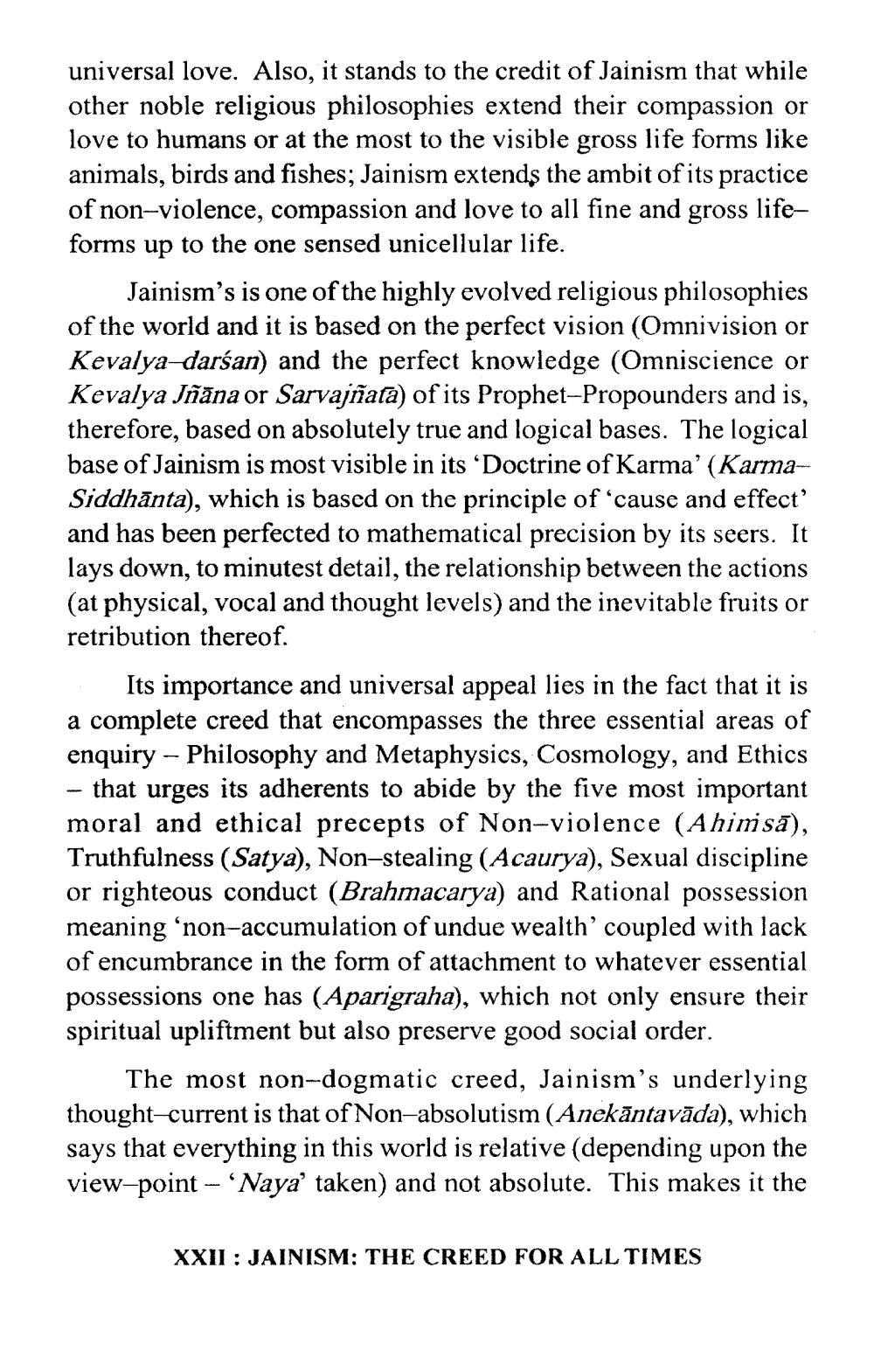________________
universal love. Also, it stands to the credit of Jainism that while other noble religious philosophies extend their compassion or love to humans or at the most to the visible gross life forms like animals, birds and fishes; Jainism extends the ambit of its practice of non-violence, compassion and love to all fine and gross lifeforms up to the one sensed unicellular life.
Jainism's is one of the highly evolved religious philosophies of the world and it is based on the perfect vision (Omnivision or Kevalya-darśan) and the perfect knowledge (Omniscience or Kevalya Jñāna or Sarvajñata) of its Prophet-Propounders and is, therefore, based on absolutely true and logical bases. The logical base of Jainism is most visible in its 'Doctrine of Karma' (KarmaSiddhanta), which is based on the principle of 'cause and effect' and has been perfected to mathematical precision by its seers. It lays down, to minutest detail, the relationship between the actions (at physical, vocal and thought levels) and the inevitable fruits or retribution thereof.
Its importance and universal appeal lies in the fact that it is a complete creed that encompasses the three essential areas of enquiry - Philosophy and Metaphysics, Cosmology, and Ethics
that urges its adherents to abide by the five most important moral and ethical precepts of Non-violence (Ahimsā), Truthfulness (Satya), Non-stealing (Acaurya), Sexual discipline or righteous conduct (Brahmacarya) and Rational possession meaning 'non-accumulation of undue wealth' coupled with lack of encumbrance in the form of attachment to whatever essential possessions one has (Aparigraha), which not only ensure their spiritual upliftment but also preserve good social order.
The most non-dogmatic creed, Jainism's underlying thought-current is that of Non-absolutism (Anekāntavāda), which says that everything in this world is relative (depending upon the view-point - 'Naya' taken) and not absolute. This makes it the
XXII: JAINISM: THE CREED FOR ALL TIMES




